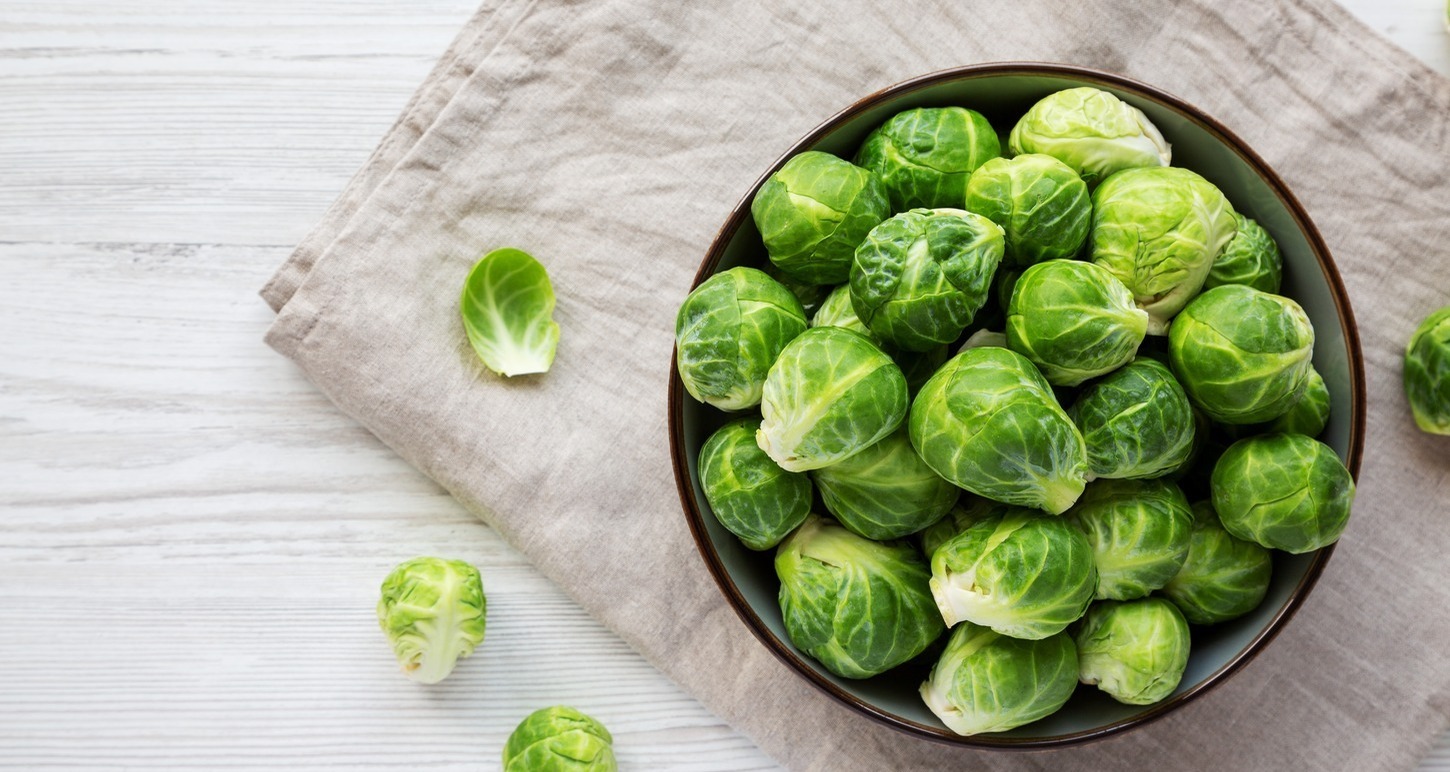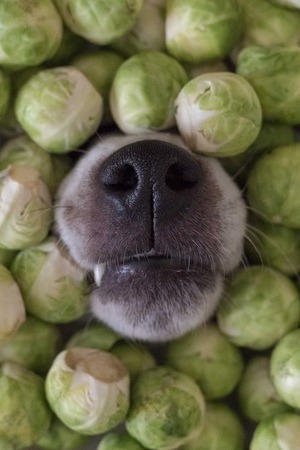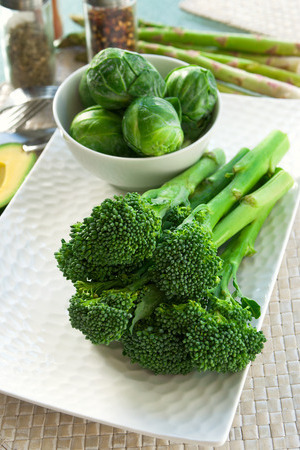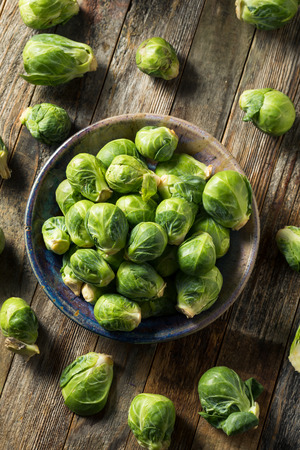Can my dog eat Sprouts: Risks & Benefits Explained
November 22, 2024 | By David Jackson

They’re one of the most divisive festive foods (next only to the silverskin onion…), but love them or hate them, the humble sprout is a seasonal staple here in the UK.
When it comes to us pawrents, sprouts are touted as a superfood, bursting with nutrients, minerals and vitamins that give our bodies, health and immune systems a hearty boost.
But what about our dogs? In fact, you’ve probably found yourself wondering, “can my dog eat sprouts?”
Understandable, really, considering you can’t walk around your local supermarket at the moment without seeing shelf after shelf of little cabbages.
And in truth, it’s a great question, especially as we all try to make sure our pets are getting the very best in their diets.
So, in this article we’ll explore whether sprouts are safe for dogs and, if so, how to introduce them properly, how much they should eat and a few other top tips to keep your pooch happy and healthy.
Table of Contents
Table of Contents
Sprouts as a Nutrient Source

Sprouts are nutrient-dense young vegetables that have just started to grow from seed.
These tiny greens are well-known for being packed with essential vitamins - like vitamins C, K and A - minerals, and antioxidants. They also contain a whole dose of gut-friendly fibre and other phytonutrients that promote good overall health.
But what about our canine companions?
Can these tiny greens boost your dog's health too?
The most important thing to remember before we get into the nitty gritty of this topic is that dogs have very different digestive systems and dietary needs compared to humans.
That means not every food we eat is safe or even beneficial for them, so…
Are Sprouts Safe for Dogs?
In short – yes, sprouts are safe for dogs to eat!
Which is excellent news if any rogue sprouts happen to topple onto the floor when cooking your festive feast this year and your pooch snaffles them up…
But, do they need them? No.
That said, they can be a handy addition to help boost the nutritional profile of your pup’s meals if you do fancy giving your dog a wee extra something.
Nutritional Value of Sprouts for Dogs
Sprouts, particularly Brussels sprouts, have several nutritional benefits that could be a great addition to your dog's diet, for example:
Vitamins
Brussels sprouts are deliciously rich in vitamins C and K.
Vitamin C acts as an antioxidant, helping combat free radicals in your dog’s body, while vitamin K is vital for bone health and ensuring blood clots properly when needed.
Antioxidants
The antioxidants in sprouts are powerful in helping reduce inflammation and improving overall immune health.
In fact, they might even help to protect your dog’s cells from oxidative stress, promoting longer-term health.
Fibre
Brussels sprouts contain a decent amount of dietary fibre, which is important for your dog's digestive health.
Fibre helps keep things moving in the digestive system and can contribute to more consistent bowel movements.
In addition to Brussels sprouts, other sprouts like broccoli or alfalfa sprouts also contain many beneficial vitamins and phytonutrients that could give your dog’s health a boost too.
However, moderation is always key as there can be some potential side effects if you feed your dog too many.
Potential Side Effects
While sprouts are undoubtedly rich in nutrients, they also have the potential to cause some unwanted side effects if not served properly or if given in excessive amounts.
 Digestive Upset
Brussels sprouts are notorious when it comes to causing gas – and, yes, that applies to your dog as well.
You see, feeding too many sprouts can lead to digestive discomfort such as gas, bloating, and even diarrhoea.
Raw Sprouts Warning
Dogs love a raw veg at times. Carrots seem to be a particular favourite, but feeding raw sprouts to your pup is not recommended. This is because raw sprouts might carry bacteria like E. coli or Salmonella, which could be harmful to you and your dog.
It’s best to cook your sprouts to help to eliminate these risks and make them safer for your dog to consume.
And remember, when introducing sprouts (or any new food), it's always smart to start slowly and offer a small portion to see how your dog’s system responds.
Just like humans, every dog is different, and their tolerance for new foods can vary. Be sure to monitor your dog for any signs of discomfort or digestive issues and stop adding sprouts to their diet at the first sign of issue.
How to Serve Sprouts to Your Dog Safely
If you’ve decided you’d like to add sprouts to your dog's diet, even if it’s just as an occasional treat, it’s important to know how to do so in the safest and most effective way to ensure your dog gets loads of sprout benefits without any of the risks.
Cooking Methods and Serving Sizes
Cooked vs. Raw
It’s best to lightly cook sprouts before feeding them to your dog.
Cooking, like steaming or blanching, helps make sprouts easier to digest and reduces the risk of bacterial contamination.
Portion Control
Moderation is the key to keeping sprouts a healthy addition to your dog's diet.
Since sprouts are high in fibre, too much of it could upset your dog’s stomach or cause loose stools.
Chopping
To avoid any choking hazard, especially for smaller breeds, it’s a good idea to chop sprouts into small, bite-sized pieces, even if they’ve been steamed or boiled.
Monitoring for Digestive Issues
After serving sprouts for the first time, it’s really important to keep an eye on your dog for any adverse reactions. Some dogs may take to sprouts right away without any issues, while others might show signs of digestive problems like:
 Excessive Gas
Yes, just like humans, dogs can get rather gassy after eating sprouts.
Of course, some gas is perfectly normal when introducing a high-fibre food, but excessive or particularly foul-smelling gas could indicate that sprouts aren’t agreeing with your pup.
Diarrhoea or Vomiting
Diarrhoea or vomiting could be an indication that your furry friend’s digestive system can’t really handle sprouts.
If either of these things happen, stop giving your pup the sprouts and return to their normal diet.
If they persist, it’s recommended you consult your vet for advice.
Another good tip is to keep a close watch on how your dog behaves after eating sprouts. If they seem uncomfortable, lethargic, or restless, it might be best to avoid adding sprouts to their diet altogether.
In Conclusion
So, can dogs eat sprouts? The answer is a resounding yes… but with some caveats.
Little cabbages (and other sprouts) can be a healthy, nutrient-rich addition to your dog’s diet, but only when given in moderation and cooked and prepared properly.
If you’re planning on giving your dog a little treat, be sure to lightly cook them and only dish them up in small amounts as too many may lead to gas, digestive issues, or discomfort for your dog.
As with any new food, it’s always a good idea to talk to your vet before making sprouts a regular part of your dog’s diet, particularly if your dog has any existing health issues.
And, as always, remember, every dog is unique, and what works well for one might not suit another. When in doubt, consult a professional, and always observe your dog's reaction to new foods stopping them immediately if you find your pup has an adverse reaction.
Frequently Asked Questions
1. Can dogs eat sprouts safely?
Yes, dogs can eat sprouts safely as long as they are cooked and given in moderation. Avoid feeding raw sprouts to minimize the risk of bacterial contamination.
2. Are Brussels sprouts good for dogs?
Brussels sprouts are rich in vitamins C and K, antioxidants, and dietary fiber, which can benefit your dog's health. However, they should be introduced slowly and served in small amounts to prevent digestive issues.
3. Can sprouts cause gas in dogs?
Yes, sprouts, particularly Brussels sprouts, can cause gas in dogs. Feeding too many can lead to bloating or digestive discomfort, so portion control is essential.
4. How should I prepare sprouts for my dog?
Sprouts should be lightly cooked (steamed or blanched) and chopped into small, bite-sized pieces. This makes them easier to digest and reduces the risk of choking or bacterial contamination.
5. What are the side effects of feeding sprouts to dogs?
Side effects may include gas, bloating, or diarrhoea if sprouts are given in excessive amounts. Always monitor your dog for adverse reactions when introducing new foods.
Related Blog Posts Section
More From Our Blog
|